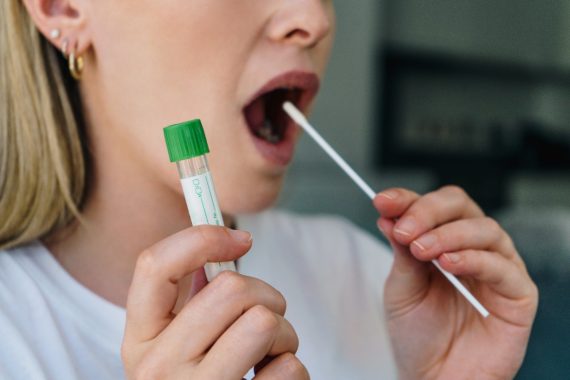GPs should opportunistically record confirmed Covid in patients who have been vaccinated if they see them face to face, Public Health England (PHE) has said.
Patients who have had either one or both of their Covid jabs and tested positive or started symptoms within the past seven days and ‘at least’ ten days after their first dose should be reported to PHE by their GP, it added.
PHE guidance updated last month said that it is conducting ‘enhanced surveillance of cases of infection in vaccinated individuals in England’.
The guidance said: ‘Clinicians who are seeing patients face to face are encouraged to report any confirmed cases in partially or fully vaccinated individuals if they tested positive within the preceding seven days.
‘This provides an opportunity to get early and complete samples from these cases.’
GPs should send samples to PHE’s national reference laboratory ‘on identification of the case or as soon as possible afterwards’ , including a ‘minimum’ of one nose and throat swab and one serum sample, PHE said.
These should be taken within seven days of the positive test, with cases found via a lateral flow device to be ‘confirmed’ using a PCR test, it added.
However, GPs ‘do not need to recall’ vaccinated patients who are Covid positive but only need to report cases when patients are seen face to face, the guidance said.
There is also no requirement to report retrospective cases, it added.
A PHE briefing note sent to practices last month said the ‘passive reporting’ would monitor the ‘effectiveness and impact’ of the vaccination programme.
The briefing, seen by Pulse, said: ‘Even with a highly effective vaccine it is anticipated that some vaccinated individuals will go on to develop infection.
‘With an effective vaccine, positive test results in vaccinated individuals are more likely to be false positives than positive tests in unvaccinated individuals.’
It added that there may be ‘certain groups that are less likely to respond to vaccination than others’ and certain virus variants that vaccines are less effective against.
It comes as a new study has suggested that the Oxford/AstraZeneca vaccine provides ‘minimal protection’ against mild to moderate infection with the South African variant of the virus.
But another study has suggested that the vaccine is effective against the Kent mutation of coronavirus.
Pfizer/BioNTech announced last month that a lab study suggests its vaccine is effective against new strains of coronavirus.
Meanwhile, the vaccines minister has confirmed that GPs could be administering Covid variant ‘booster shots’ later this year – perhaps in the autumn.











